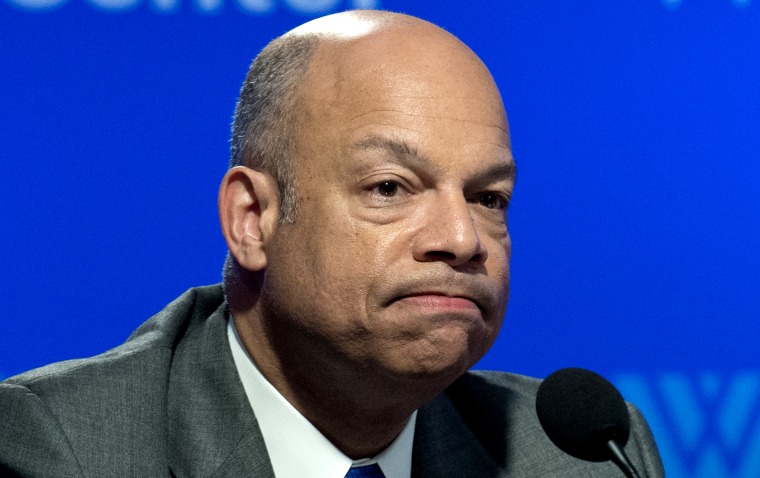Secretary of Homeland Security Jeh Johnson laid out an agenda for the agency that went beyond counterterrorism in his first major speech Friday, touching on everything from smarter immigration enforcement to addressing cybersecurity.
Speaking at the Woodrow Wilson International Center in Washington, D.C., Johnson detailed some of the challenges the agency faces and highlighted work already being done, from offering intelligence support to Russia during the Olympics in Sochi to providing generators to powerless homes in Pennsylvania.
Johnson also put the agency’s role as enforcer of U.S. immigration policy into the context of the congressional gridlock over comprehensive immigration reform. While House Speaker John Boehner said Thursday that legislation is unlikely to go anywhere this year, Johnson called immigration reform “a matter of national security” and stressed the need to be ready to implement any policy changes.
Undocumented immigrants, Johnson said in his remarks, “are not going away. They are not going to self-deport. Many have come here as children. As matter of homeland security, we should encourage these people to come out of the shadow.”
America's ongoing war against terrorist threats did not go unnoticed by Johnson, who promised to aggressively pursue terror groups like al Qaeda in the Arabian Peninsula. He also spoke of a recent meeting in Poland with representatives of U.S. allies to discuss the civil war in Syria, which Johnson called "a matter of homeland security."
In addition to the still unrealized threat of westerners successfully indoctrinated by terror groups and sent back to America to launch attacks, Johnson mentioned what he called "the so-called lone wolf," threats, individuals who might "self-radicalize" and attack U.S. interests. There have been no terrorist attacks committed by foreign terrorist groups since Sept. 11, 2001.
Bombs were not the only threats Johnson flagged as pressing; Johnson vowed to work with representatives from the private sector to protect data and enhance online security. He also promised to recruit the "best and the brightest" workers from private technology companies. Government cooperation with the private sector is not a new endeavor; information leaked by former National Security Agency contractor Edward Snowden showed that the U.S. government collected large swaths of data from private telephone and Internet providers.
Johnson was sworn into office on Dec. 23.
